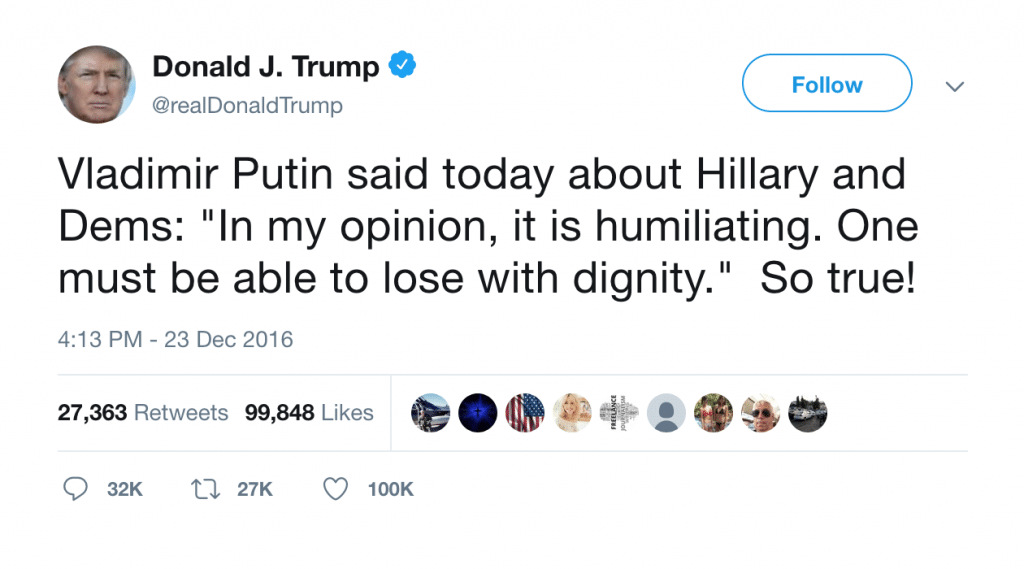CNN.com, December 12, 2016
It sounds like something out of a political thriller. A union leader calls out a politician for lying about the number of jobs he is saving with a deal. The politician retaliates by insulting him publicly on Twitter
Within half an hour, the menacing messages begin. “You better keep your eye on your kids,” the politician’s supporters tell the labor leader. “We know what car you drive.”
This is no fiction. The politician in question is our President-elect, Donald Trump; the union leader is Chuck Jones, head of a Steelworkers’ Union local in Indiana.
And the progression of events is now a familiar one. Trump tweets a personal attack on something or someone. His followers then back it up with insults and often threats (including rape, if the subject is a woman) by phone, in person, and on social media.
Throughout the cycle, Trump remains silent, leaving his supporters to interpret his messages as they see fit — and to act accordingly. Lauren Batchelder, a college student who Trump called “arrogant” after she asserted that he was “not a friend to women,” has received violent threats for almost a year.
We don’t know which individual or entity will be the next unwilling star of a drama worthy of Netflix but all too real. Yet we can begin a discussion about what we can do about this situation in view of Trump’s impending ascent to the pinnacle of state power
For starters, we need to be realistic. It’s time to drop any illusions that Trump will “pivot” to any semblance of conventional leadership behavior. He has trafficked in

